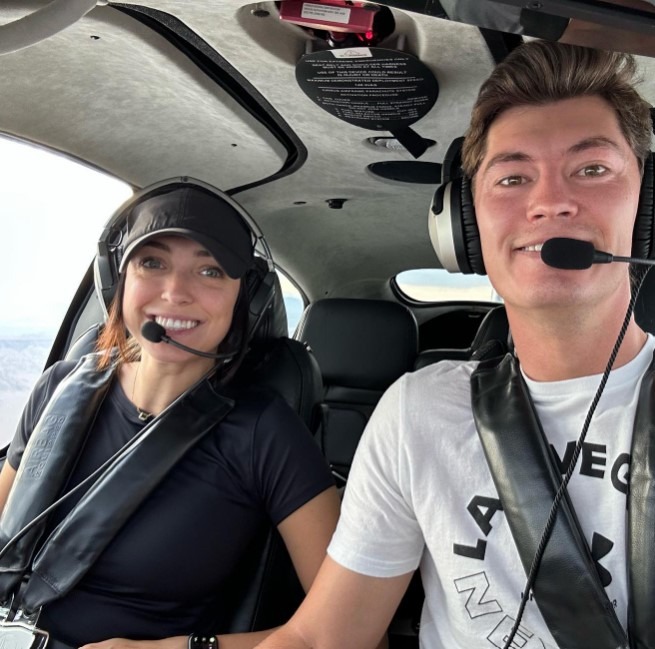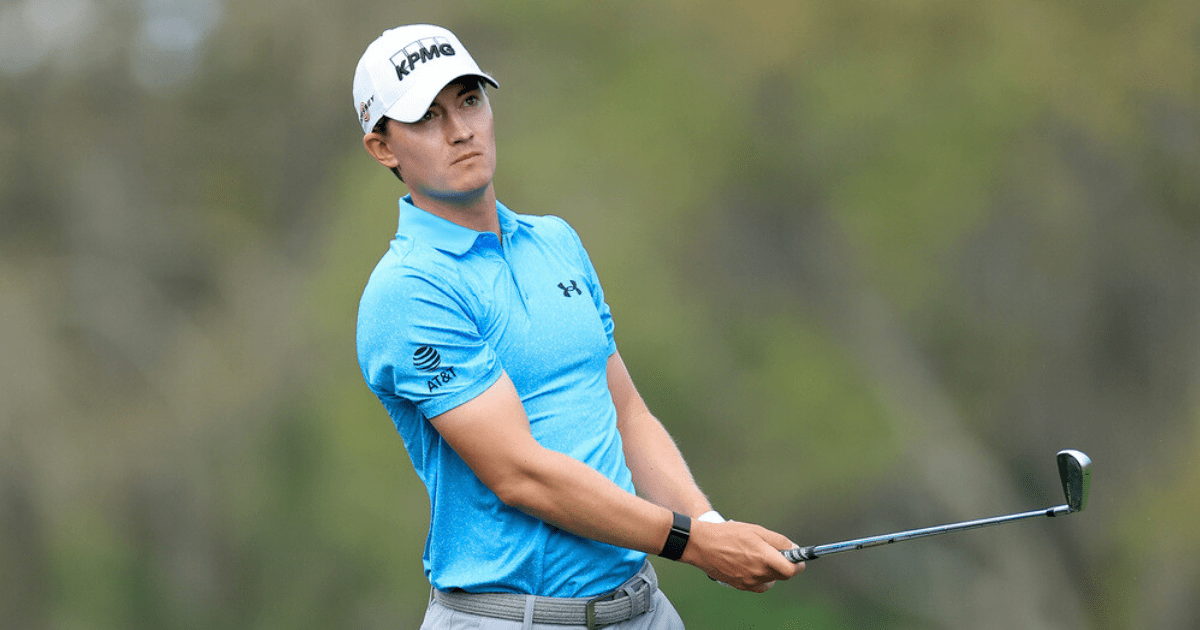A Golfer Like No Other
Maverick McNealy is not your average golfer. With a career earnings of £7 million, this American star has made a name for himself both on and off the course. Born in 1995, McNealy was a world No1-ranked amateur before turning pro in 2017. Despite not having a tournament win yet, he has already amassed an impressive sum through his golfing skills, including a career-high ranking of 57th in the world.
A Pilot in the Sky
But McNealy's talents don't stop at golf. He is also a qualified pilot, having secured his flying license at the age of 27. When he's not teeing off, you can find him soaring through the skies, taking his wife on aeroplane flights. His passion for flying runs in the family, with his grandfather working in the auto industry.
Billionaire Heir and Family Man
As if being a pro golfer and pilot weren't enough, McNealy is also set to inherit a billion-dollar fortune from his father, a high-profile businessman who co-founded tech company Sun Microsystems. Despite his wealth, McNealy doesn't get a free pass from his dad, who instilled a strong work ethic in him and his brothers. The golfer even donates to a non-profit organization for every birdie he scores.
Life Off the Course
McNealy's personal life is just as intriguing as his professional one. He recently tied the knot with wife Maya in a low-key ceremony, after previously dating fellow pro golfer Danielle Kang. With a thirst for learning and improvement, both on the grass and in the air, McNealy is a true trailblazer in the world of sports and aviation.

Frequently Asked Questions
Do professional golfers spend more time on physical or mental preparation?
Professional golfers know that both physical ability and mental toughness are essential to their sport. Their training emphasizes a balance between the two. Although a lot of time is spent on physical training and fitness in order to increase strength, flexibility, endurance and flexibility, mental training does not go unnoticed. Visualizing shots, managing anxiety and stress on the course, and strategic thinking are critical components of a pro golfer’s mental training. A golfer could work with sports therapists to improve mental resilience and concentration, which is essential for competitive rounds.
Does pro golfers follow a strict training diet?
Diet is a critical aspect of a pro golfer’s training as it impacts energy levels, recovery, and overall health. Golfers often work with nutritionists in order to customize meal plans to suit their own needs. These plans usually include balanced portions of carbs, proteins, fats and other nutrients to help fuel long practice and playing days while maintaining optimal weight. Staying hydrated is also important for physical conditioning and focus.
What are some common injuries pro golfers face, and how do they prevent them?
Back pains, wrist injuries, tendinitis or shoulder issues are some of the most common injuries suffered by professional golfers. In order to prevent injuries, professional golfers use regular fitness training that focuses on strengthening the muscles they use for golf as well as increasing flexibility. Swing analysis helps golfers ensure that their technique doesn’t put too much stress on the body. Adequate warm-up routines, proper nutrition, and working with physical therapists or chiropractors also play roles in injury prevention.
What is the importance of course management in pro golfer training?
The course management aspect of golf training is essential for all pro players. It extends far beyond the swing technique and athleticism. It is about making strategic decisions that are based on various risk-reward scenario’s. A golfer will learn to evaluate factors like wind conditions, topography of the course, hazards and pin placements during training. Golfers can formulate game plans with the help of a caddy or coach who knows how to play to their strengths.
How do golf pros prepare for a competition?
Preparation for a tournament is a comprehensive process that involves both physical and mental aspects. They arrive on the course several days prior to the tournament, familiarizing themselves with the layout of the course and its challenges. They’ll adjust their equipment as needed and conduct extensive short game practice, as well as spending time developing a solid game plan. They’ll make sure they are physically fit and well rested, and mentally they will focus on developing a positive, calm mindset.
Statistics
- Approximately 65% of a pro golfer’s training time is allocated to short game practice, including putting and chipping.
- Pro golfers over the age of 35 tend to dedicate at least 20% more time to flexibility training than their younger counterparts.
- Nearly 40% of professional golfers update their swing analysis software at least once every two years to stay at the forefront of technology.
- Rest days are included in 100% of the training schedules of top professional golfers to prevent burnout and injury.
- Statistical data indicates that around 50% of pro golfers have experienced a golf-related injury due to overtraining.
- Nearly 80% of professional golfers engage in regular physical fitness programs designed specifically for golf.
- About 70% of professional golfers report practicing in adverse weather conditions to improve their adaptability to the elements.
- An estimated 60% of professional golfers change at least one piece of their equipment each season.
External Links
garmin.com
golfdigest.com
trackingfootball.com
pga.com
sciencedirect.com
18strong.com
swingu.com
golfweek.usatoday.com
How To
How to Create a Golf-Specific Exercise Program
A golf-specific exercise regimen should be based on exercises that improve mobility, power, stability, and stability. Core exercises improve rotational strength critical for the swing, while lower body workouts build a stable base. With dynamic stretching and Yoga, you can increase your flexibility. Plyometrics are a great way to improve explosive power. Pro golfers should work with a fitness professional to tailor the program to meet their individual needs and goals.
Did you miss our previous article…
https://www.sportingexcitement.com/golf/tiger-woods-to-make-comeback-at-the-masters-next-month/

